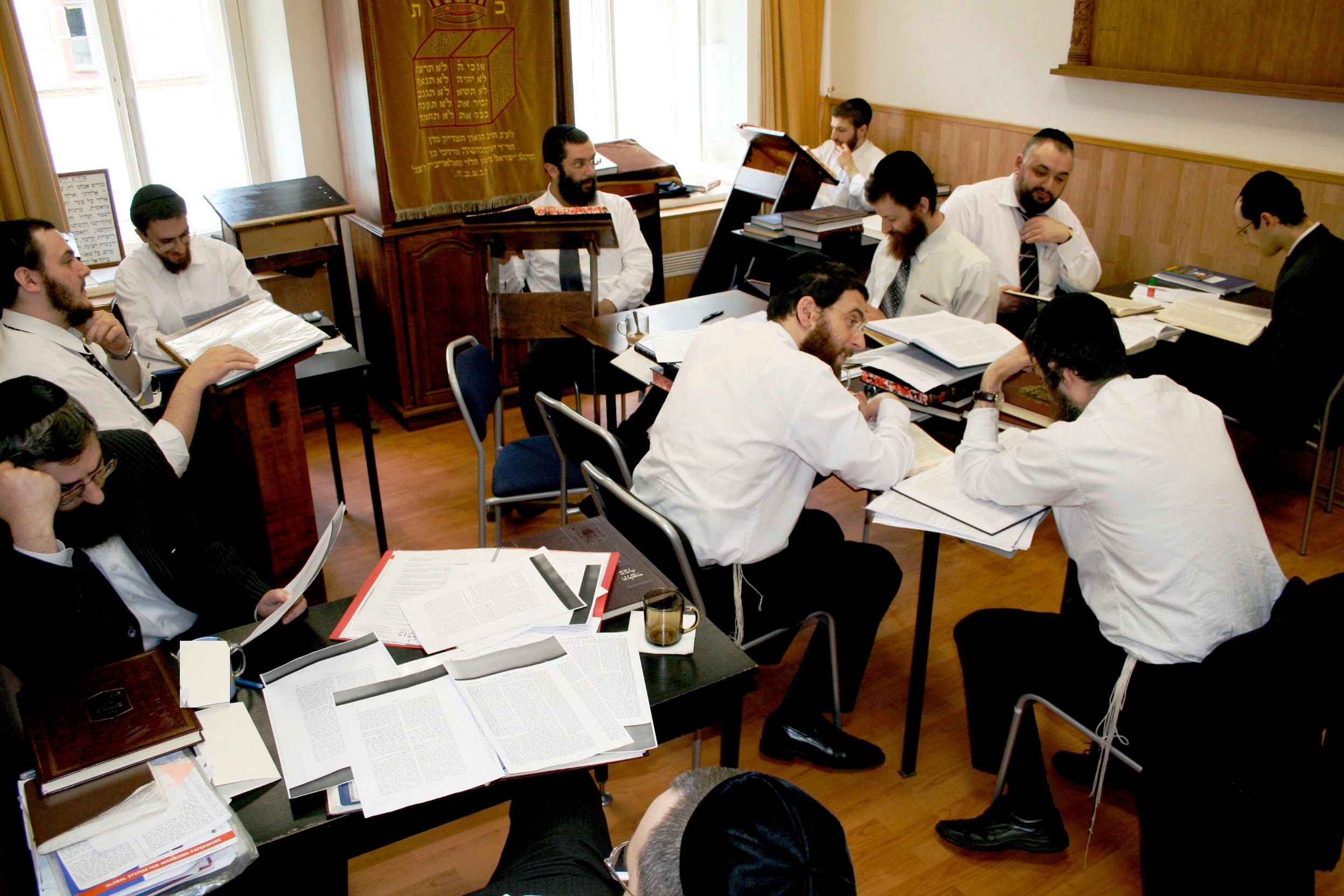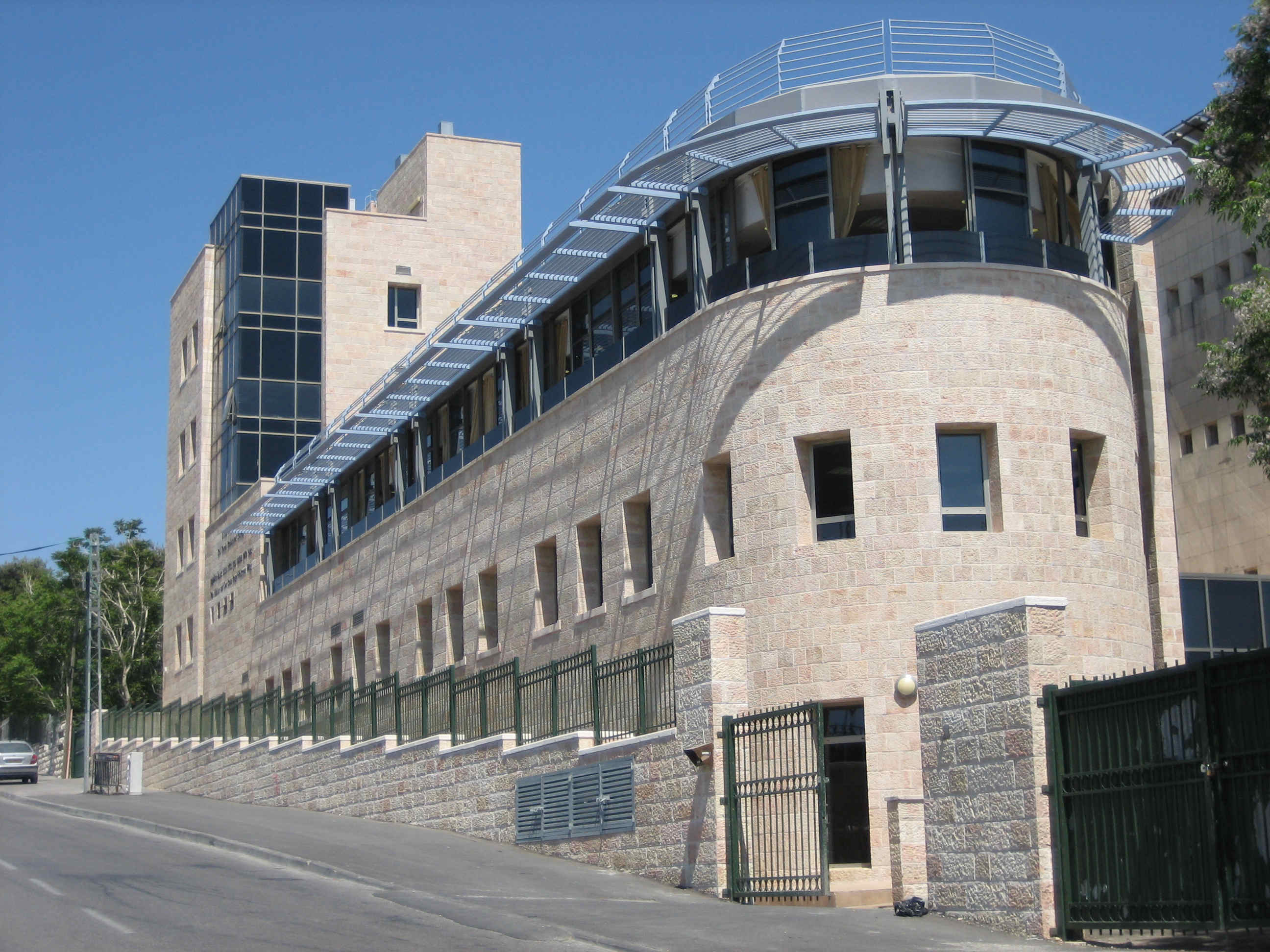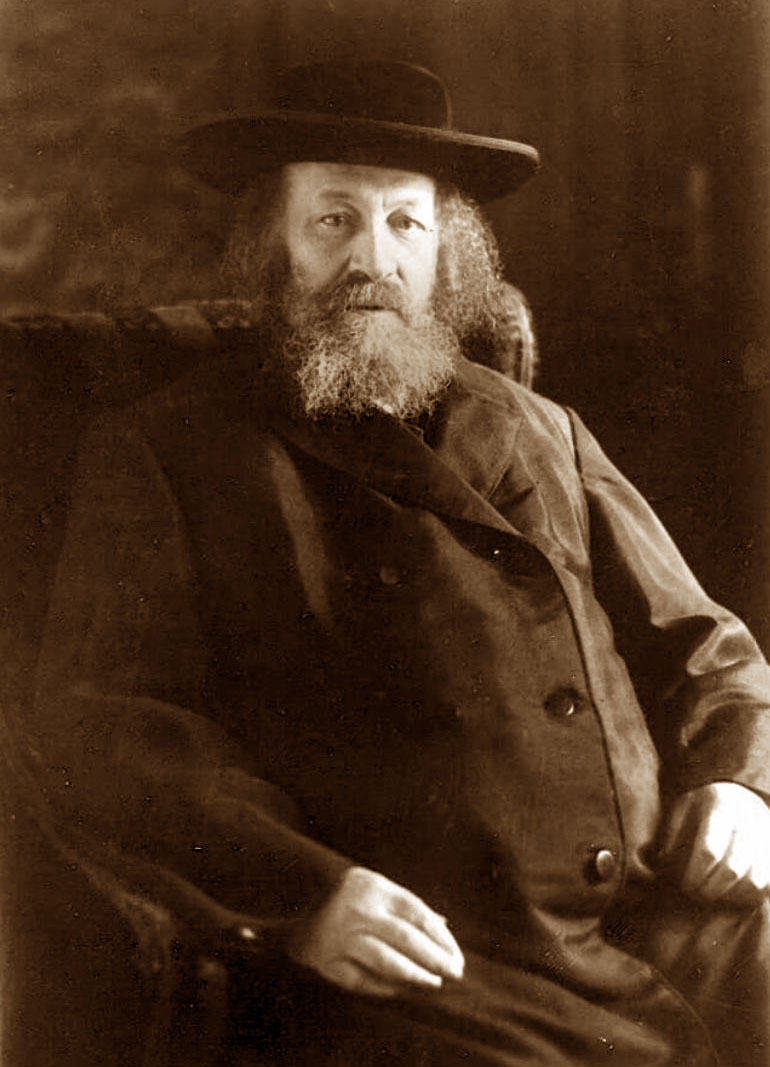|
Shaare Zedek Cemetery, Jerusalem
The Shaare Zedek Cemetery is a small Jewish burial ground located behind the first Shaare Zedek Hospital in Jerusalem. Originally used by the hospital as farmland for grazing milk cows, the area was converted into a temporary cemetery during the Arab siege of Jerusalem in 1948. Approximately 200 burials were conducted here between March and October of that year. Most graves were transferred to permanent cemeteries after the war, but a handful remain, notably those of several prominent Jerusalem rabbis and the founding director of Shaare Zedek Hospital, Dr. Moshe Wallach. Location The cemetery is located on the north side of Shazar Boulevard, between Nordau and Agrippas Streets. History Until 1948, Jewish burials in Jerusalem were conducted in the centuries-old Jewish cemetery on the Mount of Olives. In January 1948, the Arab siege of Jerusalem made the Mount of Olives inaccessible, as the route to the cemetery passed through hostile Arab villages. A new burial ground was opened ... [...More Info...] [...Related Items...] OR: [Wikipedia] [Google] [Baidu] |
Jerusalem
Jerusalem (; he, יְרוּשָׁלַיִם ; ar, القُدس ) (combining the Biblical and common usage Arabic names); grc, Ἱερουσαλήμ/Ἰεροσόλυμα, Hierousalḗm/Hierosóluma; hy, Երուսաղեմ, Erusałēm. is a city in Western Asia. Situated on a plateau in the Judaean Mountains between the Mediterranean Sea, Mediterranean and the Dead Sea, it is one of the List of oldest continuously inhabited cities, oldest cities in the world and is considered to be a holy city for the three major Abrahamic religions: Judaism, Christianity, and Islam. Both Israelis and Palestinians claim Jerusalem as their Capital city, capital, as Israel maintains its primary governmental institutions there and the State of Palestine ultimately foresees it as its seat of power. Because of this dispute, Status of Jerusalem, neither claim is widely recognized internationally. Throughout History of Jerusalem, its long history, Jerusalem has been destroyed at least twice, Sie ... [...More Info...] [...Related Items...] OR: [Wikipedia] [Google] [Baidu] |
World Agudath Israel
World Agudath Israel ( he, אגודת ישראל), usually known as the Aguda, was established in the early twentieth century as the political arm of Ashkenazi Torah Judaism. It succeeded ''Agudas Shlumei Emunei Yisroel'' (Union of Faithful Jewry) in 1912. Its base of support was located in Eastern Europe before the Second World War but, due to the revival of the Hasidic movement, it included Orthodox Jews throughout Europe. Prior to World War II and the Holocaust, Agudath Israel operated a number of Jewish educational institutions throughout Europe. After the war, it has continued to operate such institutions in the United States as Agudath Israel of America, and in Israel. Agudath Israel is guided by its Moetzes Gedolei HaTorah (Council of Sages) in Israel and the USA. History Katowice Conference World Agudath Israel was established by Jewish religious leaders at a conference held at Kattowitz (Katowice) in 1912. They were concerned that the Tenth Zionist Congress had d ... [...More Info...] [...Related Items...] OR: [Wikipedia] [Google] [Baidu] |
Kollel
A kollel ( he, כולל, , , a "gathering" or "collection" f scholars is an institute for full-time, advanced study of the Talmud and rabbinic literature. Like a yeshiva, a kollel features shiurim (lectures) and learning ''sedarim'' (sessions); unlike most yeshivot, the student body of a kollel typically consists mostly of married men. A kollel generally pays a regular monthly stipend to its members. History Original sense Originally, the word was used in the sense of "community". Each group of European Jews settling in Israel established their own community with their own support system. Each community was referred to as the "kollel of " to identify the specific community of the Old Yishuv. The overwhelming majority of these Jews were scholars who left their homelands to devote themselves to study Torah and serve God for the rest of their lives. The kollel was the umbrella organization for all their needs. The first examples were Kolel Perushim (students of the Vilna Gaon w ... [...More Info...] [...Related Items...] OR: [Wikipedia] [Google] [Baidu] |
Kotsk (Hasidic Dynasty)
Kotzk (Yiddish: קאצק) is a Hasidic dynasty originating from the city of Kock, Poland, where it was founded by Menachem Mendel Morgenstern (1787–1859). Kotzk is a branch of Peshischa Hasidism, as Menachem Mendel Morgenstern was the leading disciple of Simcha Bunim of Peshischa (1765–1827). Following Simcha Bunim's death he led the divided Peschischa community, which he eventually incorporated into his own Hasidic dynasty. Kotzk follows a Hasidic philopshy known for its critical and rationalistic approach to Hasidism and its intense approach to personal improvement which is based on a process of harsh constructive criticism and total transparency of self. Kotzk is closely connected to other branches of Peshischa Hasidism such as Ger and Aleksander and is currently based out of Jerusalem. History Nearing the end of his life Menachem Mendel Morgenstern lived in total seclusion from his followers. After his death, he had already amassed a large following. His eldest ... [...More Info...] [...Related Items...] OR: [Wikipedia] [Google] [Baidu] |
Avraham Schlesinger
Abraham, ; ar, , , name=, group= (originally Abram) is the common Hebrew patriarch of the Abrahamic religions, including Judaism, Christianity, and Islam. In Judaism, he is the founding father of the special relationship between the Jews and God; in Christianity, he is the spiritual progenitor of all believers, whether Jewish or non-Jewish; and in Islam, he is a link in the chain of Islamic prophets that begins with Adam (see Adam in Islam) and culminates in Muhammad. His life, told in the narrative of the Book of Genesis, revolves around the themes of posterity and land. Abraham is called by God to leave the house of his father Terah and settle in the land of Canaan, which God now promises to Abraham and his progeny. This promise is subsequently inherited by Isaac, Abraham's son by his wife Sarah, while Isaac's half-brother Ishmael is also promised that he will be the founder of a great nation. Abraham purchases a tomb (the Cave of the Patriarchs) at Hebron to be Sarah' ... [...More Info...] [...Related Items...] OR: [Wikipedia] [Google] [Baidu] |
Kol Torah
Kol Torah is a yeshiva in the Bayit Vegan neighborhood of Jerusalem. History Yeshivas Kol Torah was founded in 1939 by Yechiel Michel Schlesinger (1898–1948), born in Hamburg, Germany and Boruch Kunstadt, a dayan from Fulda, Germany. It was the first mainstream Haredi yeshiva to teach in Hebrew, as opposed to Yiddish, as was accepted at the time. This innovation had the crucial support of the Chazon Ish. After Schlesinger's death in 1949, Kol Torah was headed by Shlomo Zalman Auerbach, until his death in 1995. Moshe Yehuda Schlesinger, eldest son of the founder, is currently serving as rosh yeshiva. Kol Torah is separated into two parts, the rabbinical college and the high school. The number of students in both combined reaches around 1000 students. Notable faculty members * Gavriel Bollag (1911–2007), member of the Mir Yeshiva – Shanghai. * , son in law of Shlomo Zalman Auerbach. * , chief disciple of Elazar Shach and Jerusalem Faction leader. * Shimon Mo ... [...More Info...] [...Related Items...] OR: [Wikipedia] [Google] [Baidu] |
Rosh Yeshiva
Rosh yeshiva ( he, ראש ישיבה, pl. he, ראשי ישיבה, '; Anglicized pl. ''rosh yeshivas'') is the title given to the dean of a yeshiva, a Jewish educational institution that focuses on the study of traditional religious texts, primarily the Talmud and the Torah, and ''halakha'' (Jewish law). The general role of the rosh yeshiva is to oversee the Talmudic studies and practical matters. The rosh yeshiva will often give the highest '' shiur'' (class) and is also the one to decide whether to grant permission for students to undertake classes for rabbinical ordination, known as ''semicha''. The term is a compound of the Hebrew words ''rosh'' ("head") and ''yeshiva'' (a school of religious Jewish education). The rosh yeshiva is required to have a comprehensive knowledge of the Talmud and the ability to analyse and present new perspectives, called '' chidushim'' ( novellae) verbally and often in print. In some institutions, such as YU's Rabbi Isaac Elchanan Theological ... [...More Info...] [...Related Items...] OR: [Wikipedia] [Google] [Baidu] |
Yechiel Michel Schlesinger
Yechiel ( he, יְחִיאֵל) is a Hebrew masculine given name meaning "May God live" or "God shall live". Several people in the Bible have this name. See Jehiel (biblical figure). Alternative spellings of Yechiel include Jehiel, Yehiel, Yechi'el, and Yiddish variants include Ichel, Ychel, Echiel, Cheil, and Chil may refer to: People *Yehiel Bar (born 1975), Israeli politician *Jehiel Brooks (1797–1886), American soldier and politician *Yehiel De-Nur (1909–2001), Israeli writer * Yehiel Dresner (1922–1947), Israeli paramilitary fighter *Yechiel Eckstein (1951–2019), American rabbi *Yechiel Fishel Eisenbach (1925–2008), Israeli rabbi * Jehiel R. Elyachar (1898–1989), American engineer *Yechiel Michel Epstein (1829–1908), Lithuanian rabbi *Yehiel Lasri (born 1957), Israeli politician and mayor *Yechiel Leiter Dr Yechiel (Michael) Leiter ( he, יחיאל לייטר) is an Israeli historian of philosophy, and also a public policy analyst. Leiter is a resident sc ... [...More Info...] [...Related Items...] OR: [Wikipedia] [Google] [Baidu] |
Yisroel Moshe Dushinsky
Yisroel Moshe Dushinsky ( he, ישראל משה דושינסקי) (December 22, 1921 – March 26, 2003) also known as the Maharim, was the second Rebbe of the Dushinsky Hasidic dynasty of Jerusalem, Israel. He assumed the leadership of the Hasidut at the age of 28 upon the death of his father, Rabbi Yosef Tzvi Dushinsky, founder of the dynasty. He was also a member of the rabbinical court of the Edah HaChareidis for over 40 years, completing his tenure as the seventh chief rabbi of the Edah HaChareidis from 1996 to 2003. Early life Yisroel Moshe Dushinsky was the only child of Rabbi Yosef Tzvi Dushinsky and his second wife, Esther Neuhaus. His father was over 50 years old at the time of his birth. Yisrael Moshe was born in Chust, Ukraine, shortly after his father began serving as Rav of that city. He was named after his paternal grandfather, Yisroel, and his great uncle, Rabbi Moshe Schick (the ''Maharam Schick''). His father was very attached to him and brought him along w ... [...More Info...] [...Related Items...] OR: [Wikipedia] [Google] [Baidu] |
Edah HaChareidis
The Charedi Council of Jerusalem ( he, העדה החרדית, ''haEdah haCharedit'', Ashkenazi pronunciation: ''ha-Aideh Charaidis'' or ''ha-Eido ha-Chareidis''; "Congregation of God-Fearers") is a large Haredi Jewish communal organization based in Jerusalem, with several thousands affiliated households. It is led by an independent rabbinical court, chaired by the Gaon Convenor, acronymed ''Ga'avad'', and operated by the Rabbi Convenor, ''Ra'avad''. The Council provides facilities such as dietary laws supervision, ritual baths, a Sabbath enclosure, and welfare services. The Council was founded in 1921 by devout Ashkenazi residents of Jerusalem, especially of the Old Yishuv, who refused to be affiliated in any way with the new Zionist institutions. Inspired by militant anti-Zionist ideology, it refuses to receive any state funding from the Israeli authorities, or to endorse voting in the elections, relying on donations from fellow anti-Zionist Haredi Jews abroad and its own incom ... [...More Info...] [...Related Items...] OR: [Wikipedia] [Google] [Baidu] |
Beth Din
A beit din ( he, בית דין, Bet Din, house of judgment, , Ashkenazic: ''beis din'', plural: batei din) is a rabbinical court of Judaism. In ancient times, it was the building block of the legal system in the Biblical Land of Israel. Today, it is invested with legal powers in a number of religious matters (''din Torah'', "matter of litigation", plural ''dinei Torah'') both in Israel and in Jewish communities in the Diaspora, where its judgments hold varying degrees of authority (depending upon the jurisdiction and subject matter) in matters specifically related to Jewish religious life. History Rabbinical commentators point out that the first suggestion in the Torah that the ruler divest his legal powers and delegate his power of judgment to lower courts was made by Jethro to Moses (Exodus ). This situation was formalised later when God gave the explicit command to "establish judges and officers in your gates" ( Deuteronomy ). There were three types of courts ( Mishnah, ... [...More Info...] [...Related Items...] OR: [Wikipedia] [Google] [Baidu] |
Rebbe
A Rebbe ( yi, רבי, translit=rebe) or Admor ( he, אדמו״ר) is the spiritual leader in the Hasidic movement, and the personalities of its dynasties.Heilman, Samuel"The Rebbe and the Resurgence of Orthodox Judaism."''Religion and Spirituality (Audio)''. UCTV, 20 Oct 2011. web. 31 Jul 2013. The titles of Rebbe and Admor, which used to be a general honor title even before the beginning of the movement, became, over time, almost exclusively identified with its Tzaddikim. Terminology and origin Usage Today, ''rebbe'' is used in the following ways: # Rabbi, a teacher of Torah – Yeshiva students or '' cheder'' (elementary school) students, when talking to their teacher, would address him with the honorific ''Rebbe'', as the Yiddish-German equivalent to the Hebrew word ''rabbi'' ( ' ). # Personal mentor and teacher—A person's main Rosh Yeshiva, Yeshiva teacher, or mentor, who teaches him or her Talmud and Torah and gives religious guidance, is referred to as ''rebbe' ... [...More Info...] [...Related Items...] OR: [Wikipedia] [Google] [Baidu] |




.jpg)




